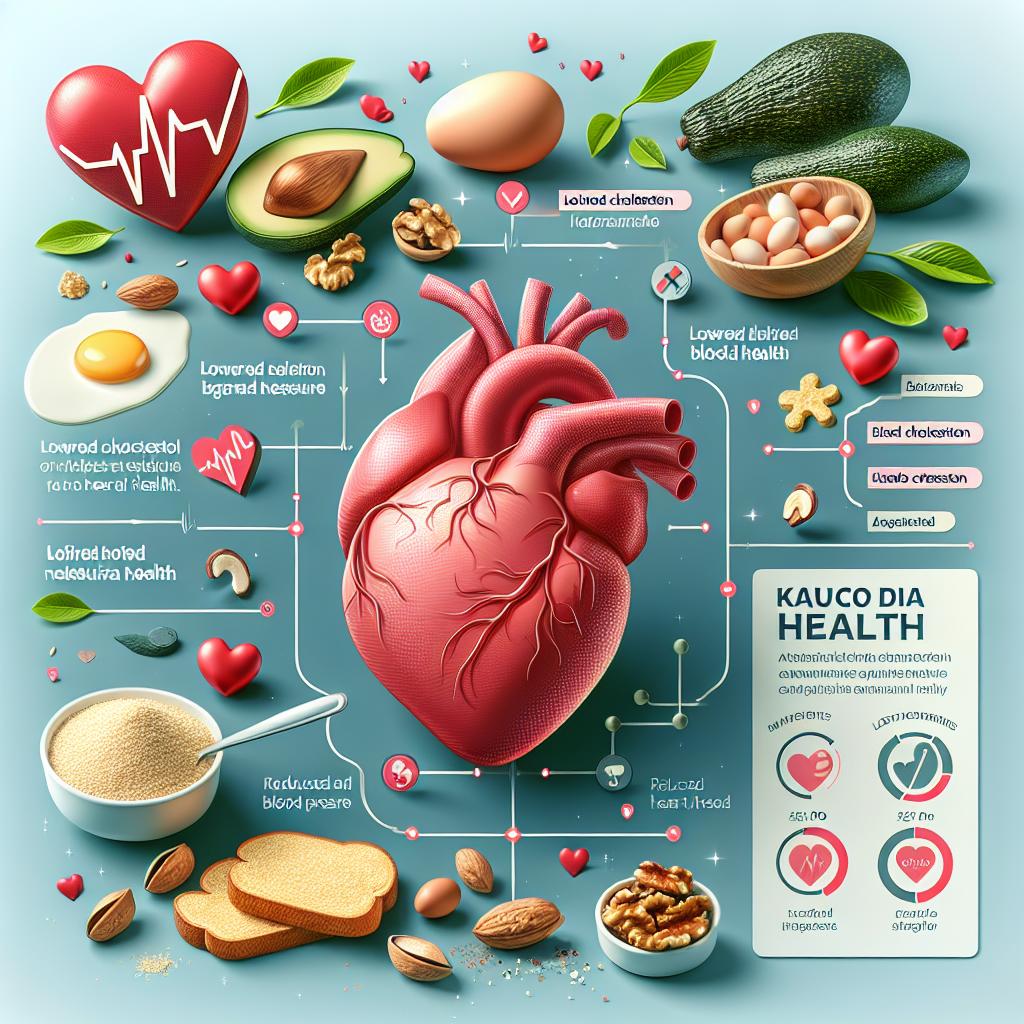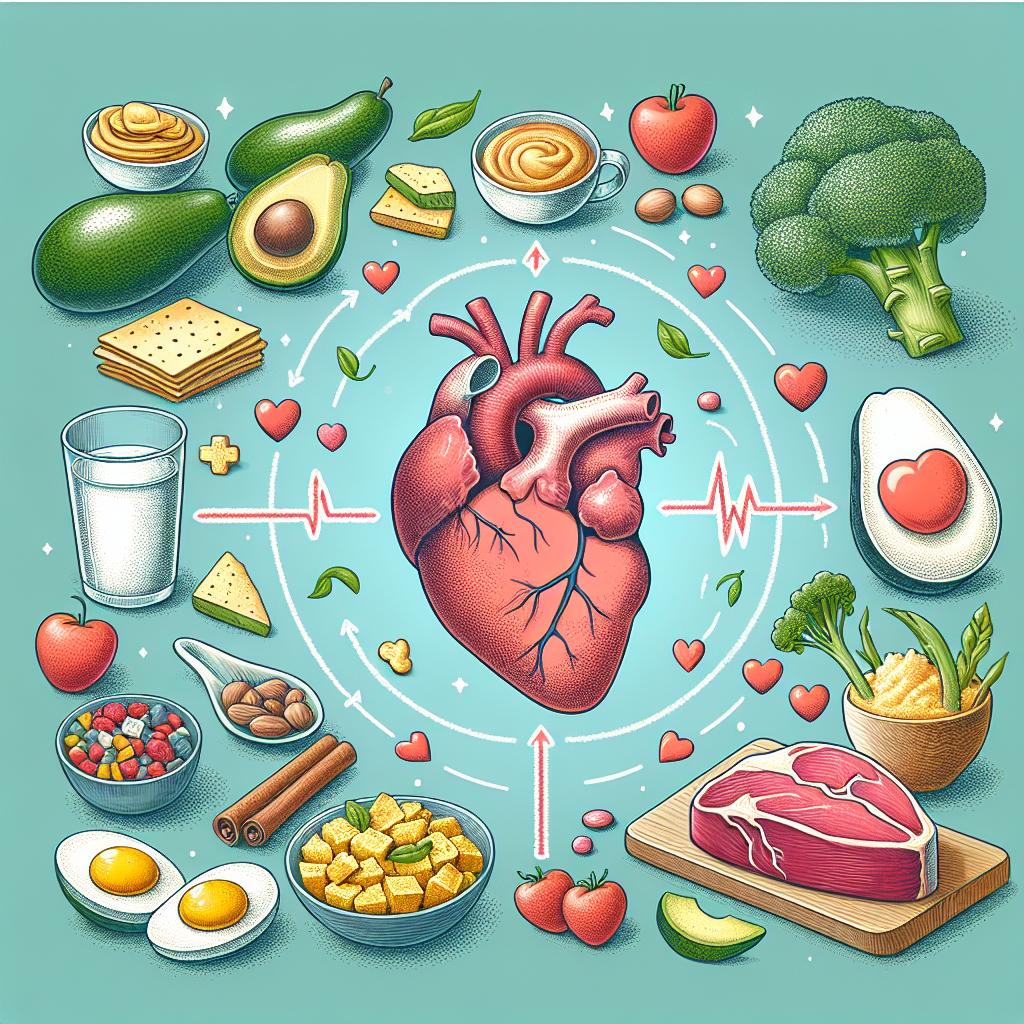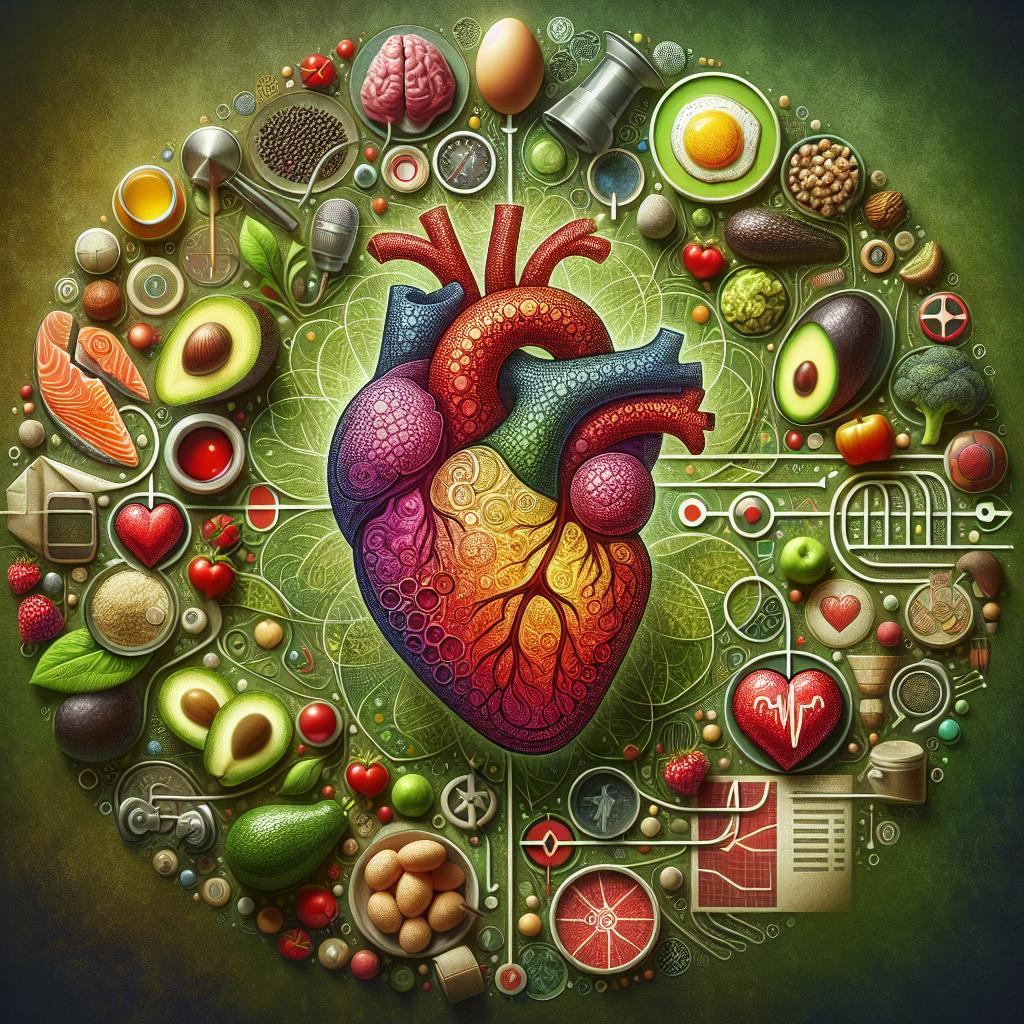This post may contain affiliate links which means I may receive a commission for purchases made through links. Learn more on my Private Policy page.
Keto Diet and Heart Health: Understanding the Connection
In a world where health fads come and go like the changing seasons, the ketogenic diet has carved out a niche that’s here to stay—captivating food enthusiasts, fitness fans, and health seekers alike. Picture this: buttery avocados, crispy bacon, and velvety cream cheese can all share a place on your plate, while helping you burn fat and boost energy. But as you embark on this delicious low-carb journey, you might be asking yourself, “What does this mean for my heart health?” Fear not! We’re here to peel back the layers of the keto diet and explore its fascinating interplay with cardiovascular wellness. So grab a warm cup of tea, settle in, and let’s uncover how this trendy lifestyle could shape your heart’s story—one tasty bite at a time!
Keto Diet Explained: Unraveling the Science Behind Low-Carb Living
The connection between the ketogenic diet and heart health has become a topic of extensive research and discussion. As a low-carb, high-fat eating plan, the keto diet shifts the body into a state of ketosis, resulting in the burning of fat for energy instead of carbohydrates. This metabolic shift can lead to various heart health implications, both positive and negative. Supporters argue that keto can help reduce body weight and lower triglycerides, both of which are beneficial for cardiovascular health. Additionally, some studies suggest that the diet may enhance levels of HDL (the “good” cholesterol), further contributing to a healthy heart profile.
However, the diet’s heavy reliance on saturated fats raises concerns among some medical professionals. The impact of these fats on LDL cholesterol levels—the “bad” cholesterol—requires careful consideration when evaluating heart health. Understanding these dynamics might involve looking at individual variations in responses to different fats, as evidenced by recent research suggesting that not all saturated fats have an equal effect on heart health. To simplify the data, consider the following table that outlines potential benefits and risks of the keto diet in relation to heart health:
| Benefits | Risks |
|---|---|
| Weight loss | Increased LDL cholesterol |
| Lower triglycerides | Potential nutrient deficiencies |
| Higher HDL cholesterol | Heart disease for certain individuals |

Heart Health Matters: How Keto Influences Cardiovascular Wellness
The ketogenic diet is known for its ability to transform the way our bodies utilize energy, primarily shifting from glucose to ketones. This metabolic change has sparked interest in its potential benefits for heart health. When following a keto lifestyle, individuals often experience a significant reduction in carbohydrate intake, which can lead to lower triglyceride levels and an increase in HDL (high-density lipoprotein) cholesterol, commonly referred to as the “good” cholesterol. These changes play a crucial role in promoting better cardiovascular health, as high levels of triglycerides and low HDL are linked to an increased risk of heart disease.
Moreover, the keto diet encourages the consumption of healthy fats, such as avocados, nuts, and olive oil, which are known to provide anti-inflammatory properties that can protect the heart. By focusing on whole foods, individuals on a keto diet may also improve their overall nutrient intake, including vital antioxidants and omega-3 fatty acids that further support cardiovascular wellness. To illustrate the potential benefits of a keto diet, here’s a quick comparison of typical dietary changes associated with this eating plan:
| Component | Keto Diet | Standard Diet |
|---|---|---|
| Fat Intake | High (70-75% of calories) | Moderate (30-35% of calories) |
| Carbohydrate Intake | Very Low (5-10% of calories) | High (45-65% of calories) |
| Protein Intake | Moderate (20-25% of calories) | Variable (10-35% of calories) |

Superfoods for Your Heart: Essential Ingredients to Embrace on Keto
When embarking on a ketogenic journey, it’s essential to incorporate ingredients that not only aid in maintaining ketosis but also support heart health. Some of the best superfoods to embrace include avocado, a creamy fruit rich in healthy monounsaturated fats, which can help lower bad cholesterol levels. Another powerhouse is fatty fish, like salmon and mackerel, packed with omega-3 fatty acids that promote cardiovascular wellness. Additionally, don’t overlook nuts and seeds, which offer a great crunch and a hearty dose of antioxidants, fiber, and healthy fats.
To further enhance the nutritional profile of your keto meals, consider adding leafy greens such as spinach and kale, which are low in carbs and high in vitamins and minerals. Incorporating olive oil as your go-to salad dressing not only adds flavor but also supports heart function with its anti-inflammatory properties. Lastly, spices like cinnamon and turmeric can deliver impressive health benefits, helping to reduce inflammation and support blood sugar levels, creating a harmonious balance in your keto diet.

Balancing Fats: Smart Choices for a Heart-Friendly Keto Lifestyle
When it comes to a heart-friendly keto lifestyle, understanding the role of fats is key. Not all fats are created equal, and the quality of the fat sources you choose can make a significant difference for your heart health. Prioritizing monounsaturated and polyunsaturated fats is essential as they can help lower bad cholesterol levels and reduce the risk of heart disease. Here are some smart fat choices to incorporate into your diet:
- Avocados: Creamy, nutrient-rich, and a great source of healthy fats.
- Nuts and Seeds: Almonds, walnuts, and chia seeds pack a nutritious punch.
- Olive Oil: A staple of the Mediterranean diet, perfect for cooking or salads.
- Coconut Oil: Offers medium-chain triglycerides (MCTs) that can be easily utilized for energy.
It’s also important to limit or avoid saturated fats and trans fats, which can negatively impact heart health. Transitioning your sources of fat can be helpful too; for instance, swapping out butter for avocado spread or using olive oil in place of margarine can have positive effects. Consider the table below for fat sources categorized by their heart health impact:
| Fat Source | Type of Fat | Heart Health Impact |
|---|---|---|
| Avocado | Monounsaturated | Good |
| Coconut Oil | Saturated | Moderate |
| Butter | Saturated | Not recommended |
| Olive Oil | Monounsaturated | Very Good |
| Trans Fats | Trans | Harmful |
Q&A
Q&A: Keto Diet and Heart Health – Understanding the Connection
Q1: What is the Keto Diet all about?
A: The Keto Diet, short for ketogenic diet, is a low-carb, high-fat eating plan that aims to shift your body’s metabolism from burning carbohydrates to burning fats. By significantly reducing carbohydrate intake and replacing it with fats, your body enters a state called ketosis, where it becomes super-efficient at burning fat for energy. Think of it as switching your energy source from the quick fuel of carbs to the steady power of fat!
Q2: How does the Keto Diet affect heart health?
A: Great question! The connection between the Keto Diet and heart health is a hot topic. Some studies suggest that the diet may help improve certain cardiovascular risk factors, like elevated triglycerides and HDL (the “good” cholesterol) levels. However, it’s a double-edged sword! Depending on the types of fats you consume, you could also raise your LDL (the “bad” cholesterol) levels. The key is focusing on healthy fats—think avocados, nuts, olive oil—rather than saturated fats from processed meats.
Q3: Can the Keto Diet lead to heart disease?
A: The answer isn’t black and white. For some people, a diet high in saturated fats may lead to increased heart disease risk. On the flip side, individuals with metabolic syndrome or type 2 diabetes may actually benefit from the Keto Diet, experiencing improved heart health markers. It’s essential to listen to your body, do your research, and consult a healthcare professional before diving in.
Q4: What should I prioritize to keep my heart healthy on Keto?
A: Awesome question! Prioritizing heart health on the Keto Diet means choosing the right fats. Opt for unsaturated fats like those found in fish, avocados, nuts, and seeds. Incorporate plenty of non-starchy vegetables for fiber and nutrients, and don’t forget about hydration! Staying hydrated is key as you transition to a lower-carb lifestyle. And regular exercise? That’s like a cherry on top for your heart health!
Q5: Is the Keto Diet suitable for everyone?
A: While the Keto Diet works wonders for many, it’s not a one-size-fits-all solution. Individuals with certain health conditions, such as pancreatitis, liver disease, or gallbladder issues, may need to steer clear. Always consult a healthcare professional or dietitian, especially if you have pre-existing conditions or major health concerns.
Q6: How can I measure my heart health while on the Keto Diet?
A: Wonderful query! Keeping tabs on your heart health can be done through regular blood tests to monitor lipid levels, like total cholesterol, HDL, LDL, and triglycerides. Additionally, checking your blood pressure and keeping an eye on any symptoms can help you understand how your body is responding to the diet. Remember, consistency is key—so check in regularly!
Q7: Any tips for starting the Keto Diet with heart health in mind?
A: Absolutely! Start by planning your meals around healthy fats, lean proteins, and low-carb veggies. Keep a food diary to track how different foods affect you. Take it slow! Gradually reduce carbs rather than going cold turkey. And most importantly, enjoy the journey—experiment with delicious recipes and find foods that make your heart and taste buds happy!
With the right knowledge and precautions, the Keto Diet can be a helpful tool on the journey to better health. Happy Keto-ing! 🍳🥑❤️
Key Takeaways
As we wrap up our exploration of the Keto Diet and its intricate connection to heart health, it’s clear that this pathway to wellness can be as winding as it is rewarding. While the allure of tasty fats and fewer carbs is certainly appealing, it’s essential to approach this dietary journey with mindfulness and knowledge. Just as a well-tuned orchestra balances its instruments for a beautiful symphony, so too should we harmonize our love for the Keto lifestyle with heart-smart choices.
Remember, each person’s body is a unique canvas—what works wonders for one may not be the best for another. It’s always a good idea to consult with health professionals as you embark on this exciting culinary adventure. So, whether you’re a seasoned Keto veteran or just beginning to explore its depths, embrace the journey with an open mind and a caring heart. Your body will thank you, and so will your heart! Here’s to nourishing both your taste buds and your well-being, one delicious bite at a time. Happy Keto cooking!

